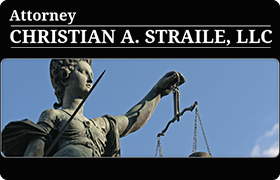 Hampton Felony Lawyers, Florida
Hampton Felony Lawyers, Florida
Sponsored Law Firm
-
 x
x

Click For More Info:
-
Attorney Christian A. Straile, LLC
1031 NW 6th Street Unit A-2 Gainesville, FL 32601» view mapDUI, Traffic Violations, Drug Crimes Committed to Effectively Helping You
My goal is to protect your rights and best interests. If that means taking a case through trial, I am ready.
352-694-4529
Sponsored Lawyers
1-7 of 7 matches
Felony, DUI-DWI, Misdemeanor, Traffic
If you or a loved one has been arrested, or is being investigated for a criminal charge, having a lawyer represent you AS SOON AS POSSIBLE is one of the most important things you can do to help. I am Bryan Neal and I am your Jacksonville Criminal lawyer. If you have been arrested, I can represent them at "First Appearance" court, and ask for an AFFORDABLE BOND or an ROR (NO MONEY RELEASE) so that the person arrested can go about their regular life such as school, work and family while I work out the charges. will speak with the PROSECUTOR and ask that the case be placed in a "PTI"( Pre-Trial Intervention) program, which if successfully completed will result in NO CHARGES BEING FILED. I can also ask that a felony case be "dropped down" to a misdemeanor, where there would be NO RISK OF A FELONY CONVICTION. As your criminal lawyer I may ask that you receive treatment for problems with drugs or alcohol INSTEAD OF SERVING A JAIL OR PRISON SENTENCE. There are LOTS OF OPTIONS for people who are arrested besides a JAIL OR PRISON SENTENCE. As your criminal lawyer I will help you get the BEST POSSIBLE OUTCOME. If a person is UNDER INVESTIGATION or has a WARRANT for their arrest, I will speak with the POLICE and the STATE ATTORNEY, so you don't have to ! IT IS IMPORTANT when you hire a CRIMINAL LAWYER that they are familiar with the people making decisions and have COURTROOM EXPERIENCE.
(more)




 Christian Straile Gainesville, FL
Christian Straile Gainesville, FL About MeCriminal Attorney
About MeCriminal Attorney PracticesPractice Areas
PracticesPractice Areas

